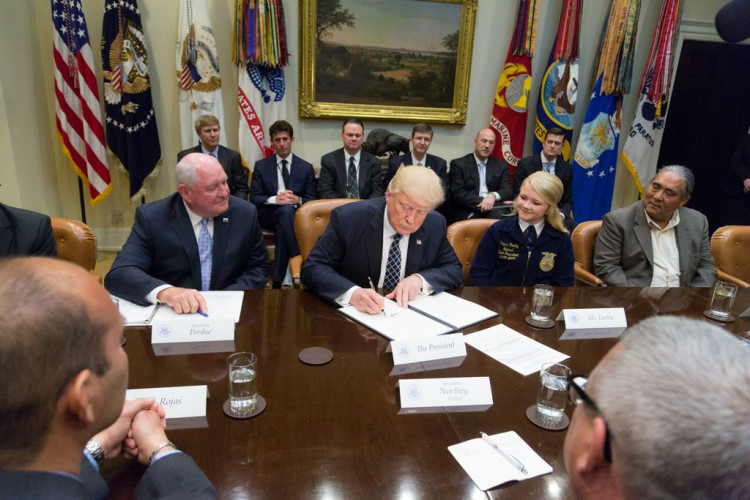The United States' trade war with China has reportedly failed. Trump's bailout for the farmers affected by the war, however, is also likely to benefit Chinese companies as well.
According to news reports, the trade war between the United States and China has become increasingly costlier, with the American farmers bearing a majority of the brunt. As such, to alleviate their suffering, the president decides to use millions from the taxpayers' dollars to bail them out. The move, however, might have inadvertently helped China as a result.
The money that is going to farmers as bailouts may also end up helping Chinese-owned as well as other foreign-owned agriculture companies that have their operations in the United States.
Washington Post has reported several Chinese-owned and foreign-owned pork producers qualifying for the government bailout check. In particular, the two largest pork producers in America, Smithfield Foods, which is Chinese-owned and JBS, which is Brazillian-owned, qualify for the bailout.
Vox reported that Trump's strategy might end up benefiting many of the countries that Trump is targetting in his trade war, especially China. The trade war is also seemingly hurting America's workers and businesses, instead of helping them. But the president seems indifferent.
The trade war with China reportedly started when America imposed around $200 billion tariffs on Chinese goods, a strategy of which was designed to make Chinese products too expensive for Americans to patronize. The goal was also to balance out the trade deficit and make China buy more US goods. However, instead of achieving these goals, America ended up making its people suffer when China slapped its tariffs on American imports.
The farmers were hit the hardest since apart from China, other foreign countries levied tens of billions of dollars as retaliatory tariffs on US agriculture. Because America taxed China, Mexico, and Canada on their steel, aluminum, and electronic goods, the three retaliated by imposing taxes on American soybeans, dairy products, pork, apples, and even potatoes.
An analysis by Tara Golshan showed that the impact on the US agriculture industry could not be undermined. Prices for soybeans have significantly dropped to a 10-year low since the tariffs were imposed and now farmers of different markets are getting anxious about how they would fare in the long run. With the bailout, farmers might be helped to stay afloat, but for how long? Not to mention, the trade deficit that was supposed to vanish because of Trump's tariff strategy, is now worse than ever.






